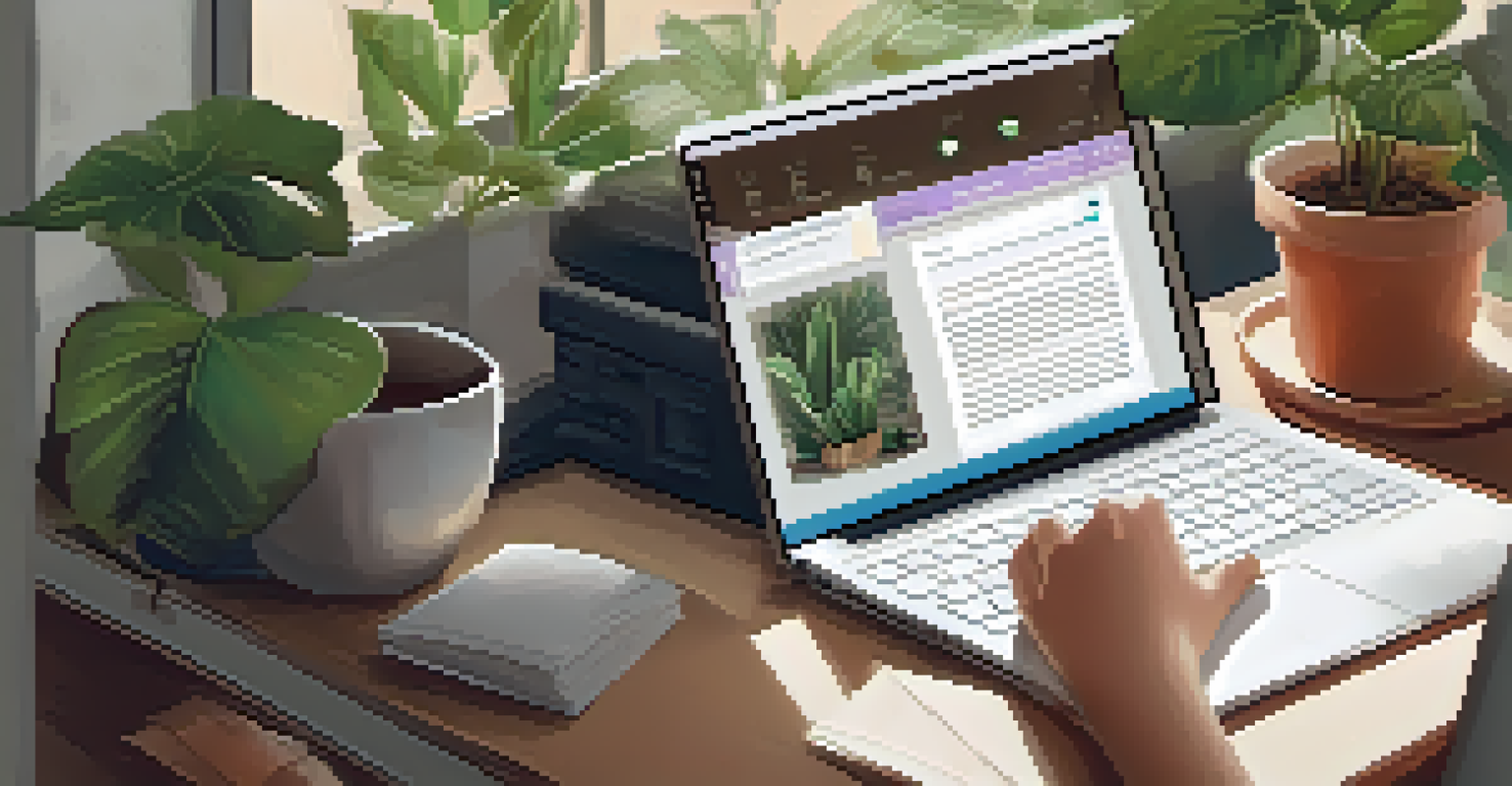The Importance of Follow-Up Emails After Job Interviews

Follow-Up Emails: A Key to Standing Out
In today's competitive job market, a follow-up email can make you stand out. After an interview, candidates often leave feeling anxious about their performance. A well-crafted follow-up email can help reinforce your interest in the position and remind the interviewer of your qualifications.
Success is not the key to happiness. Happiness is the key to success. If you love what you are doing, you will be successful.
This simple gesture shows your professionalism and enthusiasm, setting you apart from other candidates who might not take the time to follow up. It’s like sending a thank-you note after receiving a gift; it demonstrates appreciation and thoughtfulness.
Moreover, it keeps the lines of communication open, allowing you to further connect with the hiring manager. It’s a small step that can have a big impact on how you are perceived in the hiring process.
Expressing Gratitude and Professionalism
One of the most valuable aspects of a follow-up email is the opportunity to express gratitude. Thanking the interviewer for their time not only shows good manners but also reflects your awareness of their busy schedule. Acknowledging their effort helps build rapport and leaves a positive impression.

Professionalism is key in any job application process. A follow-up email is a chance to showcase it, as it reflects your communication skills and attention to detail. Employers appreciate candidates who take initiative and show respect for others' time.
Stand Out with Follow-Up Emails
A well-crafted follow-up email reinforces your interest and professionalism, helping you stand out in a competitive job market.
Additionally, expressing gratitude can make you more memorable. Hiring managers are more likely to remember candidates who took the time to thank them, which can be a deciding factor in their selection process.
Reinforcing Your Fit for the Role
A follow-up email isn’t just about saying thank you; it’s also an opportunity to reinforce your fit for the role. You can briefly mention specific skills or experiences that align with the job requirements. This serves as a gentle reminder of your qualifications.
It's not what you know, it's who you know.
For instance, if you discussed a particular project during the interview, you can highlight how your contributions led to successful outcomes. This additional context can help solidify your candidacy in the mind of the interviewer.
Moreover, reiterating your enthusiasm for the position can be persuasive. A follow-up email allows you to convey your passion for the role and the company, which can enhance your chances of moving forward in the hiring process.
Addressing Any Concerns Raised in the Interview
Sometimes, interviews can bring up concerns or uncertainties that you may want to address. A follow-up email gives you a platform to clarify any points that might have been misunderstood or require further explanation. This demonstrates your ability to communicate effectively and take responsibility for your narrative.
For example, if there was a question about a gap in your resume, you can briefly explain how you utilized that time for personal development or skill enhancement. This proactive approach can help alleviate any doubts the interviewer may have.
Personalization Matters
Crafting a personalized follow-up message demonstrates engagement and genuine interest, making your email more memorable to the interviewer.
Addressing concerns directly shows maturity and confidence. It also reinforces your commitment to transparency, which is a valued trait in any potential employee.
Timing: When to Send Your Follow-Up Email
Timing is crucial when it comes to follow-up emails. Ideally, you should send your email within 24 to 48 hours after the interview. This timeframe keeps you fresh in the interviewer’s mind and shows that you are proactive and organized.
Sending your email too late might diminish its impact, as the interviewer may have moved on to other candidates. It’s akin to striking while the iron is hot; you want to capitalize on the momentum created during the interview.
However, it’s essential to strike a balance. You don’t want to come across as overly eager or pushy. A polite and timely follow-up is key to maintaining a professional tone.
Crafting a Personalized Follow-Up Message
A personalized follow-up email can make a significant difference. Instead of sending a generic template, take the time to reference specific topics discussed during the interview. This shows that you were engaged and attentive, which can resonate positively with the interviewer.
For instance, you can mention a shared interest or a particular challenge the company is facing that you are excited to tackle. This level of personalization makes your email memorable and reflects your genuine interest in the position.
Long-Term Networking Benefits
Follow-up emails can build lasting relationships, leading to future job opportunities even if you don’t get the current position.
Moreover, a personal touch fosters a connection. It encourages the interviewer to see you as more than just a candidate; it helps them envision you as a potential team member.
The Long-Term Benefits of Follow-Up Emails
While the immediate goal of a follow-up email is to thank the interviewer and reinforce your fit, the benefits can extend beyond the job at hand. Building a positive relationship with the interviewer can lead to future opportunities, even if you don’t get this particular job.
Networking is a vital aspect of career development, and follow-up emails can pave the way for lasting connections. If the interviewer is impressed with your communication and professionalism, they may remember you for future openings or even refer you to other opportunities.

In essence, follow-up emails are not just a one-off task; they can be a strategic move in your long-term career journey. Nurturing relationships can lead to unexpected doors being opened down the line.